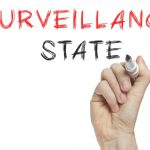Facebook opens up to Tor users with new secure .onion address

For those who are concerned about their privacy post-Snowden, there are various ways to boost online privacy such as using the anonymizing Tor browser. Browsing the internet anonymously is something that scares the authorities -- there were reports just a couple of months ago that Comcast was threatening to cut off customers who chose to use Tor -- but now Facebook has opened up to the idea.
The social network -- often criticized for its own privacy policies -- has lifted its bans on using Tor, and has created a secure URL (https://facebookcorewwwi.onion/). This can be used to visit Facebook using any Tor-enabled browser and adds a few extra layers of protection for those looking to stay secure. While the idea of anonymity on Facebook may seem oxymoronic, there is a degree of logic.
Investigation finds 'anonymous' Whisper app secretly tracks user location

Following all of the NSA revelations, mass surveillance has increased the general level of paranoia to be found online -- although it could be argued that not all surveillance is bad. With everyone on such high alert it's little wonder that an app that described itself as "an anonymous social network that allows people to express themselves" should be so popular. Whisper encourages users to embrace the supposed anonymity it offers and reveal secrets they would not otherwise feel comfortable sharing.
An investigation by the Guardian found that the app is tracking the location of its users -- even those who have opted out of such tracking. As a result of the Guardian's report, Whisper amended its terms of service and introduced a new privacy policy. But the revelations will cause concern to users of the service, who sent more than 2.5 million messages per day.
UK crime chief wants even more powers to snoop NSA-style

It has been said that we are living in a post-NSA world. What this really amounts to is that we are now slightly more aware of the level of snooping that has been going on in the background for many years. There has been widespread outrage at the revelations made by Edward Snowden, and there have been similar concerns raised outside of the US. In the UK, the FBI-like National Crime Agency, wants greater powers to monitor emails and phone calls -- and it wants the public to agree to this.
Director General of the NCA, Keith Bristow, spoke with the Guardian and said that the biggest threats to public safety are to be found online. He said that more powers to monitor online data is needed, and suggested that public resistance to this was down to the fact that he had thus far failed to properly explain why such powers are needed.
NoSpyProxy wants to put your data and identity out of reach of the NSA

Since the Edward Snowden revelations that governments as well as hackers were likely to be snooping on your internet activity it's been widely assumed that there's no such thing as safe online access.
VPN specialist CyberGhost has other ideas and has been seeking funding via Indiegogo for what it calls a NoSpyProxy. The company's VPN already uses AES256 military-grade encryption to protect passwords, bank accounts and other details as well as obscuring locations and IP addresses. It now aims to make things even more secure by placing the data center hardware under the control of an additional layer of security. This will put CyberGhost in control of the whole process from login through encryption protocol, key management and finally also the server itself.
Yahoo resisted NSA Prism requests -- US government threatened $250,000 daily fines

It's transparency time once again! After Edward Snowden opened the can of NSA surveillance worms, internet users' collected attention has been focused on online privacy. We still don’t know the full extent of the monitoring that took place, but more information continues to leak out. All of the big names -- Google, Apple, Microsoft, Facebook, and the rest -- have slowly trickled out little snippets about government data requests. A new blog post from Yahoo's general counsel Ron Bell sheds further light on the resistance the company put up against requests for data.
Just like Google and Microsoft, Yahoo is keen to let it be known that it tried to stick up for the privacy rights of its customers. A new cache of documents -- stretching to War And Peace baiting 1,500 pages -- from seven years ago shows just how much of a fight Yahoo tried to put on its users' behalves. Way back in 2007, the US government started to request information about users from a number of online companies. Yahoo was one of the companies who -- initially, at least -- refused to comply, and tried to fight the government in court.
Mystery fake cellphone towers discovered across America

Fake mobile phone 'towers' dotted across the US could be listening in on unsuspecting smartphone users according to recent reports. And -- tin foil hats on, everyone -- nobody knows who's behind them.
Security company ESD America discovered 17 of the fakes called 'interceptors' whilst testing its secure Android phone. The towers can attack devices via the baseband chips that allow them to communicate with their networks and can, says ESD, eavesdrop or even install spyware.
Paranoid much? Americans are now self-censoring online after Snowden's NSA revelations

The effects of Edward Snowden's revelations about the activities of the NSA continue to be felt. Internet users are now familiar with the idea that what they do online is possibly (probably?) being monitored in one way or another. Some users have taken to the likes of Tor in a bid to increase security and anonymity, but there has also been a more interesting side-effect. Figures released by "nonpartisan fact tank" the Pew Research Center suggests that a "spiral of silence" has developed as Americans start to censor themselves online.
The research group conducted a survey of more than 1,800 people in the middle of last year and found that while most people (86 percent) were quite happy to talk about state surveillance in person, less than half (41 percent) were willing to do so on Twitter (itself involved in censorship). This self-censorship is an interesting repercussion of the NSA's activities, and it seems that social network users have been hardest hit:
Rebel NSA and GCHQ agents are actually helping make Tor more secure

For anyone looking to stay anonymous online, Tor seems like an obvious option. At the same time, it could lull users into a false sense of security -- after all, this is a network that was, at least in the past, funded by the military and US government -- and conspiracy theories abound that Tor is nothing more than a honey trap to catch the kind of people who have a need for anonymity because of their nefarious activities. The network has evolved over the years and now agencies such as the NSA in the US and GCHQ in the UK are actively seeking out vulnerabilities so they can crack the network. But the relationships are actually far more complex than that.
According to Andrew Lewman, chief of operations at Tor, the same agencies that are trying to break Tor are also posting tips anonymously about the vulnerabilities that have been found -- giving a chance for them to be patched. Talking to the BBC Lewman said:
Edward Snowden can stay in Russia for at least three more years

The enfant terrible of the tech world, and the thorn in the side of the NSA, Edward Snowden has been granted permission to stay in Russia for a further three years. The former NSA analyst turned whistle-blower sought exile in the country a year ago and on August 1st he was granted an extension. The three-year residency permit was approved a week ago, but has only just been made public by Snowden's lawyer. Anatoly Kucherena explained that Snowden himself would hold a press conference as soon as possible, reported Russia Today.
The US has tried to force Russia to hand over Snowden so he can face charges in his home country, but for the time being, he will be able to stay where he is. If he feels inclined, the permits allows for him to travel abroad for up to three months, and he is free to travel wherever he wants within Russia. Although he has not expressed an interest in doing so, Snowden would be eligible to apply for permanent residence in Russia in five years' time.
Wilson's Weekend Whine: Snowden's call for online encryption is sad but necessary

It was quite a coup for HOPE (Hackers On Planet Earth). At the 2014 hacker event, Hope X, in New York City this weekend, Edward Snowden delivered a speech to those in attendance, advocating the use of encryption online. The former NSA analyst was not at the event himself -- he's still holed up in Moscow -- but he called on those present to help to protect privacy online. Speaking via a video link Snowden said: "You in this room, right now have both the means and the capability to improve the future by encoding our rights into programs and protocols by which we rely every day".
It was a great piece of work keeping the presentation a secret. There were, of course, fears that Snowden's appearance would somehow be thwarted: "We had to keep this bombshell quiet til the last minute since some of the most powerful people in the world would prefer that it never take place." There were certainly risks involved, but it was a risk worth taking. "[Snowden's] revelations of the massive NSA surveillance programs confirmed the suspicions of many and shocked those who haven’t been paying attention".
Snowden: Facebook is allowing the government to see your messages

In a lengthy interview with the Guardian, NSA whistle blower Edward Snowden spoke with editor Alan Rusbridger about his extraordinary rise to infamy. Currently in exile in Russia, he talked about how he disseminated documents about the activities of the NSA to numerous countries: "Once you start splitting them over jurisdictions and things like that it becomes much more difficult to subvert their intentions. Nobody could stop it". He remains defiant. He may be an outlaw but "it’s been vindicating to see the reaction from lawmakers, judges, public bodies around the world, civil liberties activists who have said it’s true that we have a right to at least know the broad outlines of what our government’s doing in our name and what it’s doing against us".
He explains how during his time working as an NSA analyst, he learned about previous surveillance programs run under George W Bush. Programs that were deemed unconstitutional and, having been closed, forced the US government to assume new executive powers that were then used "against the citizenry of its own country". For Snowden the power of the state is worrying:
Wilson's Weekend Whine: Snowden is right to be disgusted at UK 'emergency surveillance bill'

When we talk about surveillance online, it is almost always with reference to the NSA and activities in the US. But US citizens are far from being the only web users affected by surveillance. The NSA has long arms, but there are also similar activities going on in plenty of other countries. This week in the UK, the government is pushing through legislation that requires phone and internet companies to store information about customers' communication, and to hand it over to authorities on request. What made this particularly unusual was the fact that this was classed as emergency surveillance legislation with little to no debate and, more importantly, no public consultation whatsoever. Edward Snowden has plenty say on the matter, likening the British government to the NSA.
The legislation covers not only UK-based companies, but also those based in other countries who have gathered data about UK customers. It is in direct opposition to a recent European court ruling that said retention of data was a violation of European law. This in itself would be reason for any surveillance-related laws to be debated, but the government chose instead to use emergency measures -- usually reserved for times of war or disaster -- to push through laws it knows will prove unpopular. As we are now used to hearing, the surveillance is not about recording phone calls, or storing individual emails and text messages, but about retaining the related metadata -- who contacted who, when, for how long, from where, and so on.
Innocent victims: NSA gathered data about more ordinary web users than targets

We already knew that the dragnet style of data collection employed by the NSA resulted in a huge level of collateral damage. As revealed by whistle-blower Edward Snowden the agency had been intercepting huge amounts of web traffic -- often with the assistance of web firms -- on an almost unbelievable scale. The NSA has tried to improve its public image by playing the national security card, as well as releasing a "transparency report" but there's no getting away from the fact that countless innocent web users got caught up in the net. But an investigation by the Washington Post reveals the true extent of the impact on the average internet users -- and it's far worse than many thought.
A four-month investigation by the newspaper found that the number of average internet users who had their data intercepted far outweighs the data of targeted individuals. And not just by a bit -- by a factor of nine. Data provided to the Washington Post by Edward Snowden shows that an astonishing 900 percent more innocent users than intended targets fell victim to the NSA's surveillance. (For the purposes of accuracy the exact figures are closer to an 11 to 89 percent split). These are staggering revelations. There has already been very vocal opposition to the NSA's activities but these were essentially "blind" complaints. Without knowing the scale of operations, it was difficult to know just how upset to be. Nine out of ten people who had their data collected were nothing more than collateral damage caught in the extremely wide net cast by the agency.
Is Russia on the verge of creating its own controlled, closed internet?

The idea of a closed internet is hardly new; turn your eyes to East Asia, and the Great Firewall of China looms large. The Chinese government is well known for the control it likes to exert over the levels of access its citizens have to the internet, and there have been numerous well-publicized cases of censorship and access being restricted to pages that refer to certain events in the county's history. The country is highly defensive of its image, and goes to great lengths to fight off western influence -- including going as far as banning Windows 8 on government computers lest machines furnished with Microsoft's most recent operating system be used for spying on the People's Republic of China. Now it looks as though Russia could be going down a similar route.
Russian parliament has just passed a law that requires internet companies to store data about Russian citizens within the county's boundaries. The move can be viewed in a couple of ways. It is no secret that the Russian government, and Vladimir Putin in particular, is no fan of social media -- social networks were used by Russians to voice their disapproval at Putin's activities. It is thought that the move to contain citizen's data without Russia is a bid to create a Russian version of China's closed internet.
Facebook gives with one hand and takes with the other

Social networks are funny beasts, and this is certainly something that's true of Facebook. The site has a patchy history with regard to user privacy, and there are constant complaints about how personal content is used, who can gain access to it, and the privacy settings that are in place. But like all modern companies, Facebook likes to be seen listening to its customers -- or at least appear to listen. A recent example of 'listening to the people' is Facebook's reaction to the #FreeTheNipple campaign which ultimately led to the site bowing to pressure and permitting photos of breastfeeding to be published. There have also been numerous instances of responding to complaints and making privacy settings easier to control.
Like Microsoft, Google, Yahoo, and even the NSA, Facebook has released transparency reports that detail data requests and the like. Transparency reports are something that users all but demanded, and delivering them is excellent PR for the companies involved. Now Facebook is taking things up a notch, fighting for users' rights in court. Earlier this week it emerged that the social network is fighting a US court order which forced it to hand over user data. The data was requested as part of an investigation into benefit fraud. Facebook complied but complained that it was a violation of the Fourth Amendment.
Recent Headlines
BetaNews, your source for breaking tech news, reviews, and in-depth reporting since 1998.
Regional iGaming Content
© 1998-2025 BetaNews, Inc. All Rights Reserved. About Us - Privacy Policy - Cookie Policy - Sitemap.